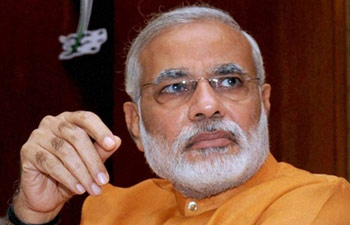 New Delhi, Apr 16: A day after he asked Congress to account for its sins before it sought apology from him for the 2002 Gujarat riots, Narendra Modi on Wednesday clarified again, saying that he was never silent on the issue.
New Delhi, Apr 16: A day after he asked Congress to account for its sins before it sought apology from him for the 2002 Gujarat riots, Narendra Modi on Wednesday clarified again, saying that he was never silent on the issue.
In an interview to a news agency, Modi said, “I was not silent, I answered every top journalist in the country from 2002-2007.”
“...but noticed there was no exercise to understand truth. It was an unknown entity causing conspiracies,” he added.
“Jitna kehna tha keh dia. Janata ki adalat say mai soney ki tarah niklaa hoon (I have said whatever needs to be said. I have come out as gold from people's court),” Modi said.
“(i)Jinkii gaadi vahaan atkii hai, unkii rozi roti chal rahi hai. (People who are earning their living from it are the ones who are stuck on the issue) I will remain committed to democracy,” he said.
He also spoke on his relationship with media post 2002 riots, Modi said, “If media would not have worked to malign Modi, who would know Modi today?”
On the fear among Muslims over his candidature from Varanasi, the BJP's prime ministerial candidate said he is contesting from Varanasi not to defeat anyone but win hearts.
Modi said, “Not going there to defeat anyone, but to win hearts, Once I meet them all, they will love me.”
Expressing confidence in NDA's ability to cross the magic figure of 272, Modi said, “This will be the worst performance in Congress' history; BJP and NDA's best performance.”
On whether his government will constitute special courts to try criminal politicians, Modi said his government will request the Supreme Court to set up special courts. He added that creating special courts is a step that is not for vindictiveness or to slap cases on opponents.
“It is to clean the system,” he said.
With regards to the possibility of the BJP tying up with AIADMK, Modi said, “No, we haven't made bitter statements against each other. I don't believe there are any political untouchables.”






Comments
Add new comment